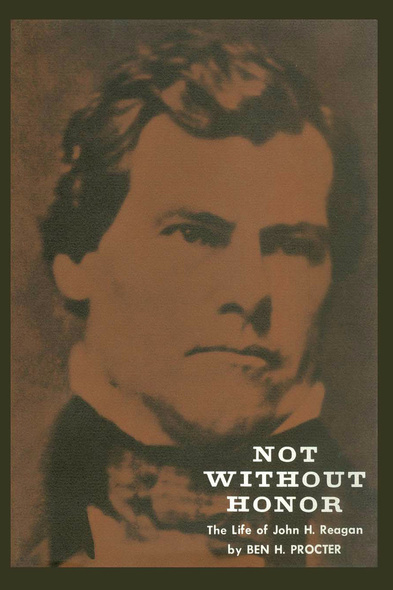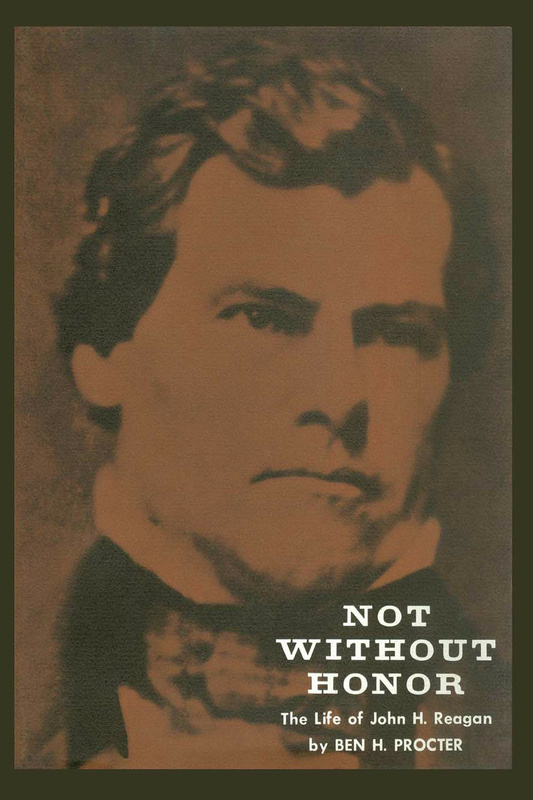John H. Reagan was one of the most important figures in Texas history; this was the first biography of him to be published. Reagan, who was born in Sevier County, Tennessee, in 1818, came to Texas twenty-one years later—while Texas was still a republic—and stayed to play many major roles in its later economic and political development.
In this excellent biography, Ben H. Procter not only re-creates for us the character of the man, with his forthright integrity and his boundless desire for knowledge, but also places him against the background of the time in which he lived. In vivid language Procter portrays the violence and vigor of pioneer life, the excitement of frontier politics, the dedication, devotion, enthusiasm, and—ultimately—despair of the Civil War, and the bitterness of the struggle with the railroad tycoons and their gargantuan monopolies. Spanning as it does the Republic of Texas, early statehood, the Confederacy, Reconstruction, and the era of the "robber barons," the story of John H. Reagan encompasses a panoramic sweep of mid- to late-nineteenth-century United States history.
Throughout his long life, respect came to Reagan almost as a matter of course. The forceful strength of his personality made an impression few people could ignore. From the day when Colonel Durst hired the young Reagan as a tutor for his children, exclaiming, "This man is a scholar," until the day some fifty years later when Governor Hogg persuaded him to leave the U.S. Senate to become chairman of the new Railroad Commission because the Commission "must be above reproach," his extraordinary character and ability were recognized. In fact, the perceptive intelligence that made him examine all aspects of a situation, and the sturdy integrity and courage that made it impossible for him to abandon a position he believed to be right simply because it was for the moment unpopular, frequently gave him the appearance of a prophet. Although this "prophetic gift" occasionally led to interludes of public disfavor, Reagan was accorded honor, even in his own land—and in later years veneration—that any prophet might envy.
[Not without Honor] illuminates Texas politics during sixty-six years; Federal and Confederate politics from 1857 to 1891; but more importantly it traces with care and understanding the evolution of a barely literate Tennessee farm boy into a man who came as close as any Texan to the stature of a statesman.
- A Prophet in His Own Country
- Acknowledgments
- 1. Heritage
- 2. Early Life
- 3. Arrival in Texas and the Cherokee War
- 4. Surveying and Survival
- 5. Turbulent Times and Readjustment
- 6. New State, New Town, New Profession
- 7. Politics
- 8. The Peters’ Colony Controversy
- 9. The Rise of a Leader
- 10. Disruption of the Union
- 11. Cabinet Member of the Confederacy
- 12. The Civil War
- 13. Imprisonment and Release
- 14. Return to Power in the Democratic Party
- 15. Overthrow of Radical Rule in Texas
- 16. Participation in State and National Affairs
- 17. The Genesis of Railroad Regulation
- 18. Struggle and Triumph in Congress
- 19. United States Senator
- 20. Railroad Commissioner
- 21. Last Years
- Bibliography
- Index





